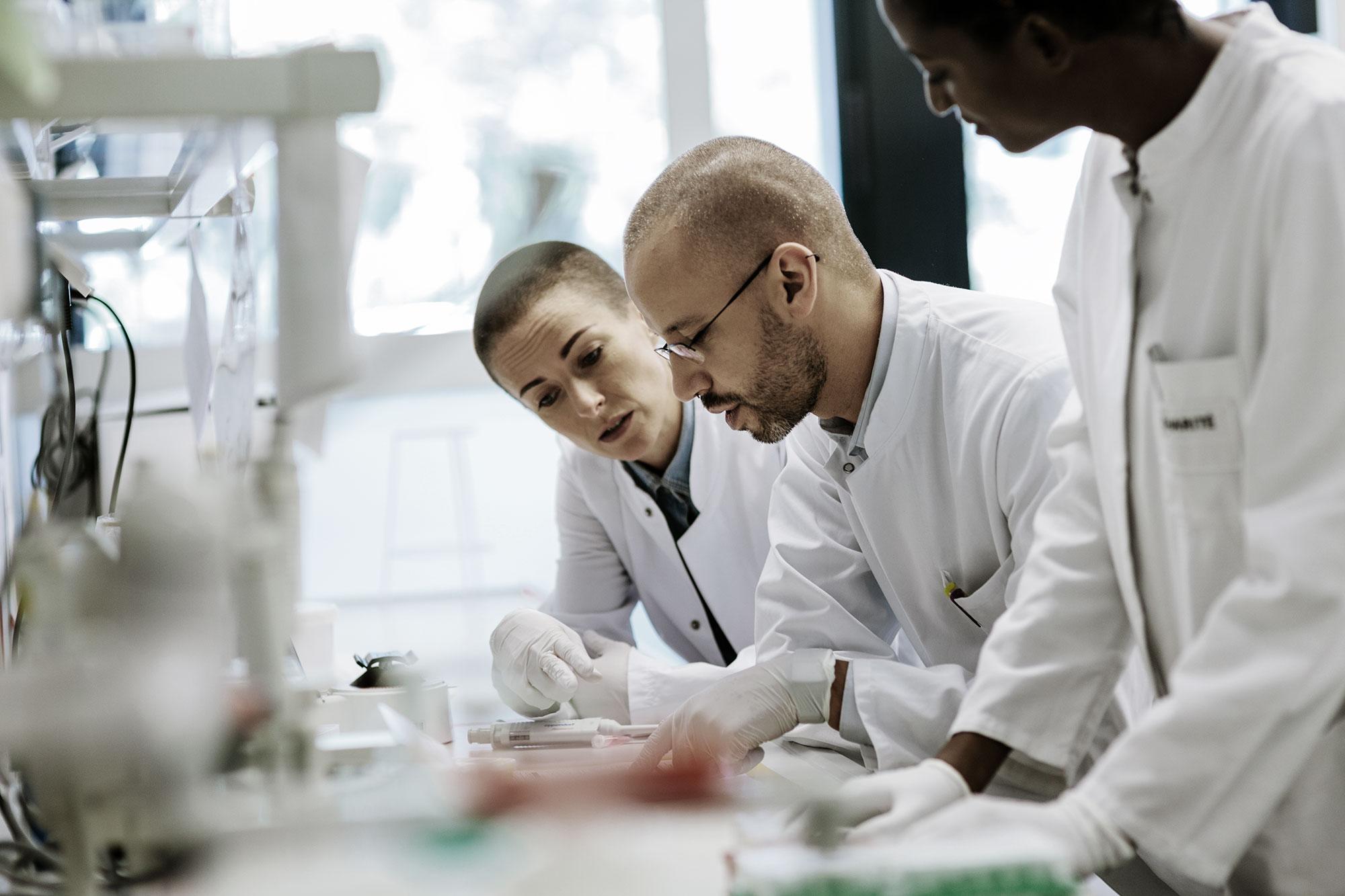SNSF Advanced Grants 2023 – 16 projects approved

Fighting metastatic breast cancer and miscarriages of justice – under the "SNSF Advanced Grants 2023" scheme, the SNSF is supporting innovative, high-risk projects with some 31.2 million Swiss francs.
Of the 177 proposals submitted and evaluated under the SNSF Advanced Grant 2023 scheme, the SNSF is funding 16. 31.2 million Swiss francs will be allocated to these projects over a five-year period.
This year, the success rate for women (11.3 percent) was almost the same as last year (12 percent), whereas the year-on-year success rate for men dropped from 22.7 percent to 8.3 percent. Of the 16 projects supported, five will be led by female researchers and 11 by male researchers. The overall success rate was 9 percent. Six projects have been selected for funding in mathematics, informatics, natural sciences, and technology. Five projects have been approved in the life sciences, and another five will receive support in the social sciences and humanities.
Around 44 percent of grant recipients will carry out their research project at a university and approximately 56 percent at the Swiss Federal Institutes of Technology.
The evaluation phase
International experts initially assessed the applications. Applicants were then provided with the anonymised results and given ten days to submit a response (rebuttal letter), which forms an integral part of the application. The referees of the SNSF Advanced Grants 2023 panel subsequently examined all the documents (peer reviews and rebuttal letters) and drafted their recommendations. Finally, the referees’ recommendations were presented and discussed during the evaluation meeting.
The call for SNSF Advanced Grants 2023 was the last for this funding scheme under the transitional measures.
Due to Switzerland's status as a non-associated third country in the EU's Horizon Europe framework programme, the SNSF launched the SNSF Advanced Grants 2023 transitional measure on behalf of the Swiss Confederation. This call for proposals was aimed at scientists intending to carry out innovative, high-risk research in Switzerland.
Examples of supported projects
Social sciences and humanities (SSH)
How do we fight miscarriages of justice and address the uncertainty that characterises all court cases? By ensuring that scientific evidence is of the highest quality, accurately assessing its collective value, and using it as a basis for sound legal decisions.
This is the goal of the project led by Franco Taroni from the University of Lausanne. Probability plays a crucial role in tackling the uncertainty surrounding information and underpins every inference about the facts to be proven. Taroni aims to develop a reference framework, along with supporting software, to help professionals assess scientific evidence credibly and robustly.
Mathematics, informatics, natural sciences and technology (MINT)
A chiral object is one that cannot be superimposed on its mirror image (a simple example is our hands or a pair of shoes). Chirality plays an important role in various fields, from particle physics to optics and the development of pharmaceutical drugs. While it has long been possible to classify a material as chiral or achiral, quantitative micro- and macroscopic measurements of chirality have been lacking. In her research project, Nicola Spaldin (ETH Zurich) aims to develop a precise formula for determining the degree to which one material is more or less chiral than another.
Life sciences (LS)
In 30 percent of cases where breast cancer goes into remission, a relapse occurs and progresses to metastases in the lungs, bones, or liver. These disseminated tumour cells remain undetectable and can cause cancer to return, sometimes many years later, following a so-called dormancy period. Mohamed Bentires-Alj, a researcher at the University of Basel, believes that the microenvironment into which these tumour cells migrate and its immune responses play a crucial role in metastatic progression. Consequently, he is focused on developing therapies that target these microenvironments and their homeostatic defence mechanisms to find new ways to prevent and treat metastatic breast cancer.